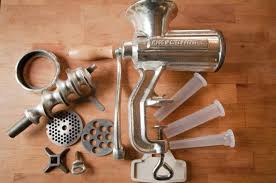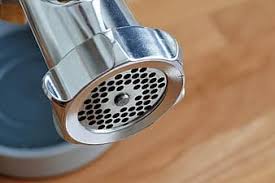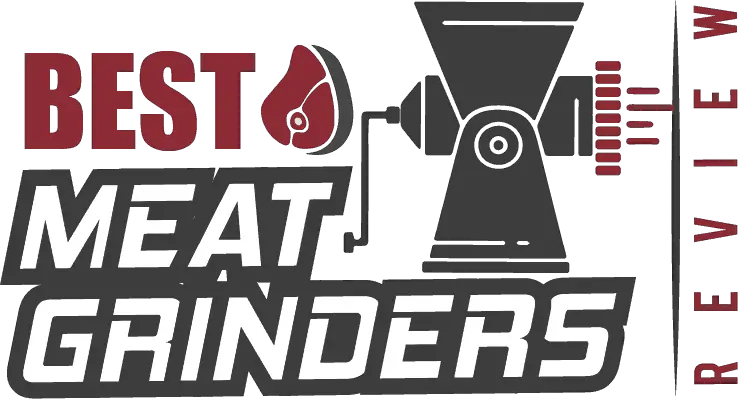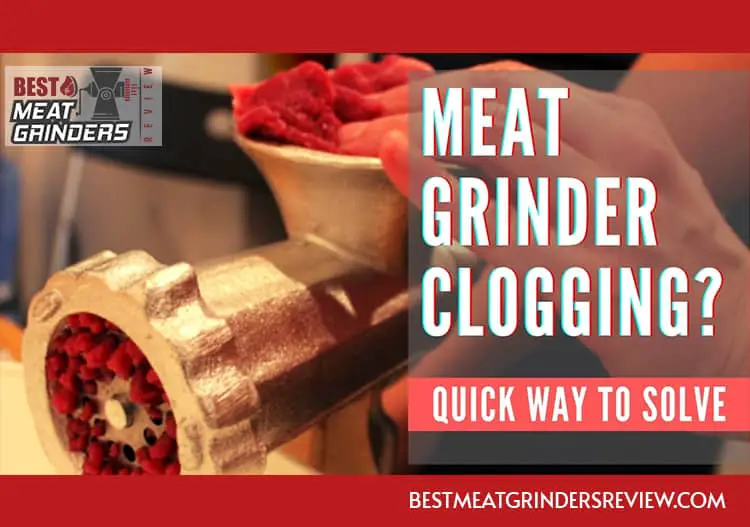Meat grinders get clogged often and unsurprisingly so because of what it needs to tear through to help us every day when we cook. Meat, bones, and skin a meat grinder is such a hardworking device that makes things rather easier for all of us.
We’re going to teach you how you’ll prevent meat grinder clogging and maintain your meat grinders properly so that they’d last longer and be more efficient.
How to keep your meat grinders from clogging
Before we go to the meat of our discussion (pun intended) please do take note that there are a few meat grinder models that are prone to clogging. Don’t worry we’re going to give recommendations later on so keep on reading.
This is quite common when you tend to overwork your meat grinders, and as mentioned, with all the bones albeit tiny ones, skin, meat that your grinder has to cut and slice through clogging is sometimes really inevitable.
Otherwise, here are some tips on how to prevent or lessen clogging on your meat grinders!
1) First up, before grinding the meat, be sure to trim excess fat and also sinew. While that may be unnecessary with high-end electric meat grinders but if you’re utilizing a basic meat grinder that chances are it will clog. Clogging is a bit more likely to happen if your meat grinder has some plastic parts.
2) Next up is to be sure to remove bones too. Like us, you’re also probably guilty of the fact that we tend to grind our meat, chicken, or pork together with the bones. Especially if we feed them to our pets.
Bones add flavor to the food but this could spell bad news for our meat grinders. Again, this is most likely the case for low-end meat grinders but trust us, even the tiniest of bones can take its toll on your meat grinder, no matter how high-tech it is, and would surely cause some clogging.
Worse, if your meat grinder ain’t equipped to grind bones then you’ll damage it and ruin your investment way too prematurely. You don’t want to keep on buying meat grinders again and again do you? We don’t want to either.
3) The next thing to do is to make sure to maintain the blades and the cutting plates of your meat grinder. For obvious reasons, these are the primary parts of your meat grinder that cuts and slice the meat.
Chances are if your cutting plates and blades are sharp enough every time you use them then you’re sure that your meat no matter if it’s got tiny bones, is always ground properly.
Once the meat is ground properly then they’ll be in the tiniest pieces possible that they won’t clog your grinder as much.
Your cutting plates and blades will get dull in time and or frequent usage, so be sure to always keep them sharp.
Also, it’s important to remember that cleaning and maintaining your meat grinder’s blades would prevent rust and corrosion to take place.
Yep, they aren’t immune to corrosion. So other than keeping them sharp you also need to make sure they aren’t rusty or corroded to always keep your food clean.
You don’t want to waste a good slab of meat just because you forgot to clean the blades of your grinder. And you don’t want to have health issues because of it either.
To make sure your blades won’t get corroded or rust you just need to dry them properly after use or after maintenance. Don’t leave them to dry but dry them with a clean towel as soon as possible.
Do not reassemble your meat grinder if they aren’t dry yet. This is especially applicable to meat grinders that are not made of 100% stainless steel.
4) Lastly, be patient and cut your slabs into smaller bits before grinding them. This will not only help in eliminating or lessening the chances of clogging, but this will also not heavily tax your meat grinder as it only needs to grind tiny bits of meat instead of huge ones.
Another thing to keep in mind is that it’s easier to grind frozen meat than the ones that are already at room temperature. This will lessen the chances of clogging.
So what happens if your meat grinder indeed gets clogged?
Here’s a quick cleaning tip:

We’ve established that most often than none clogging is caused by sinew, fat, and some bones. So when you indeed got your meat grinder to clog then you need to disassemble it properly.
Not just clogging but once you notice that your meat grinder is a bit sluggish then it’s time to clean it.
Once you’ve taken it apart you may use soapy lukewarm water with a mixture of the ever-reliable baking soda to clean it thoroughly. Meat can be greasy and baking soda works well with grease. And as directed above, dry the meat grinder immediately.
Another DIY tip when you don’t have the time to clean your meat grinder at the moment is to grind a piece of bread on it. Bread will effectively any grease or oil your device has collected in the previous grinding session.
Which type of meat grinder should I get?

Well, it depends on your needs and your budget. There are two types of meat grinders, the manual type, and the electric type.
Manual meat grinders are ideal for the everyday use of small quantities of meat. They are also relatively cheaper.
With this type of meat grinder, you should be able to hand-crank 2 to 3 pounds of meat per minute. These are the ones that need attention for they get clogged up fast when our tips above aren’t taken into consideration.
Electric meat grinders have a more complex design. This type has a convenient reverse motor function should there be any clogging or meat jamming. Even this will need maintenance now and then especially when used frequently.

